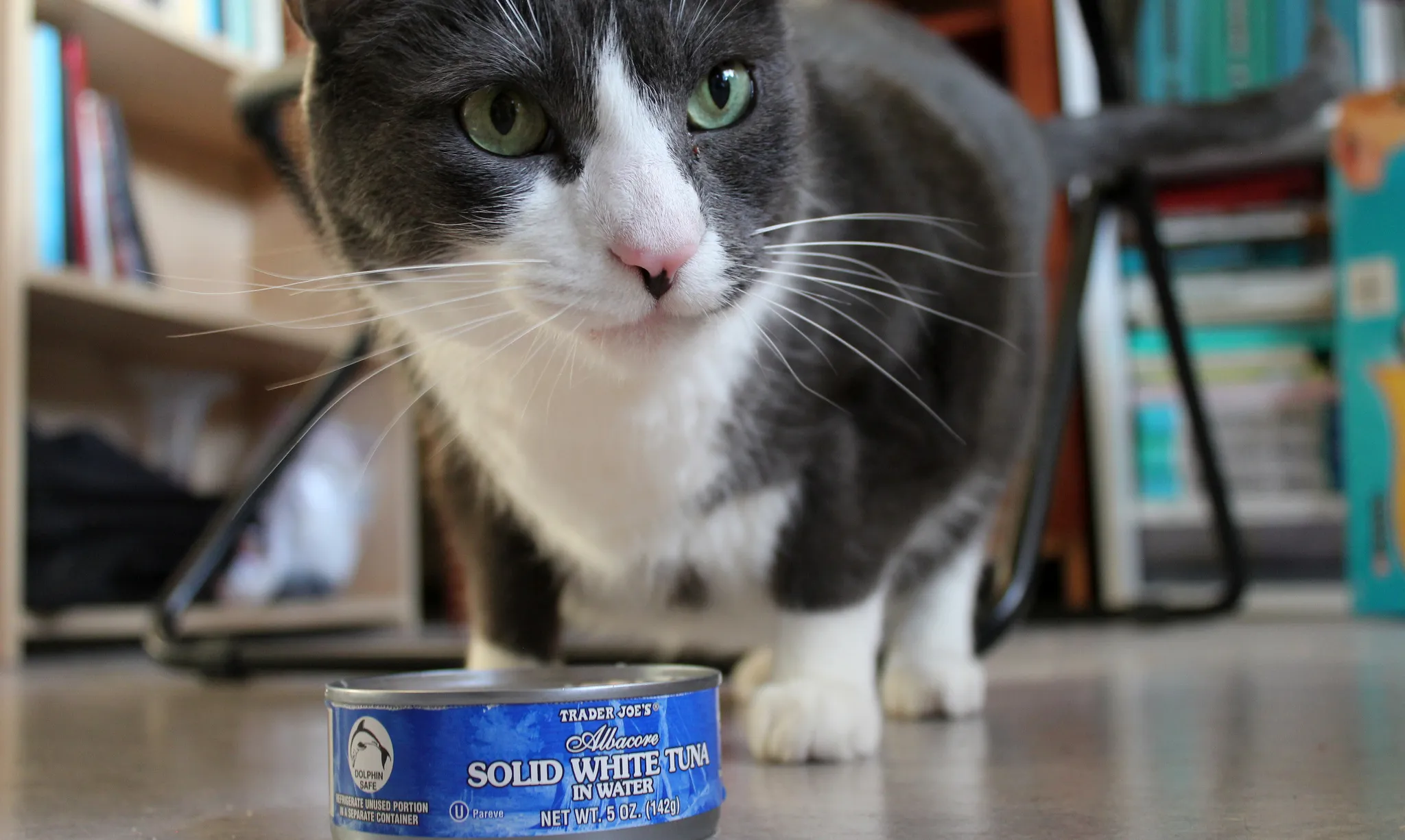Can Cats Eat Tuna? Unveiling the Truth Behind Feline Nutrition
In the world of feline nutrition, the question of whether cats can safely indulge in tuna has captured the curiosity of pet owners. With the aroma of tuna often eliciting enthusiastic responses from our feline companions, it’s vital to understand the potential implications of this dietary choice. Join us as we delve into the nuanced relationship between cats and tuna, shedding light on both the allure and the cautionary aspects.
Understanding a Cat’s Dietary Needs: Navigating Feline Nutrition
Cats are obligate carnivores, a classification that underscores their specific dietary requirements. Essential nutrients like taurine and high-quality protein are crucial for their well-being. Unlike humans, cats lack the necessary enzymes to efficiently process plant-based nutrients, emphasizing the significance of animal-derived nutrients in their diet. A well-balanced and nutritionally dense diet ensures optimal health and longevity for our feline companions.
The Temptation of Tuna: Pros and Cons
Tuna, with its strong aroma and distinctive flavor, often captivates the taste buds of cats. This fascination has led to the widespread practice of feeding cats tuna, whether as a treat or an occasional meal. While the appeal is undeniable, it’s essential to weigh the pros and cons. Tuna can provide a source of lean protein and omega-3 fatty acids, contributing to a glossy coat and overall vitality. However, the drawbacks of an all-tuna diet are significant and warrant careful consideration.
The Truth About Tuna and Feline Health: Potential Effects
Feeding tuna to cats may seem harmless, but a closer look reveals potential health risks. Tuna lacks essential nutrients required by cats, including taurine, which is vital for cardiac health and vision. A steady diet of tuna can lead to nutritional imbalances and deficiencies, ultimately impacting your cat’s well-being. Moreover, tuna often contains mercury, which, when accumulated over time, can have adverse effects on your cat’s nervous system and overall health.
Safe Tuna Consumption for Cats: Guidelines and Considerations
While the occasional tuna treat can be a delight for your cat, it’s crucial to follow guidelines to ensure their well-being. Firstly, opt for high-quality canned tuna that’s specifically labeled for human consumption, as it’s often more suitable for feline consumption. Additionally, choose tuna packed in water rather than oil, as excess oil can lead to digestive issues.
Moderation is Key:
Tuna should never replace a cat’s regular balanced diet. It’s recommended to offer tuna as an occasional treat rather than a primary food source. Incorporating it into their diet once a week or less helps minimize the risk of nutritional imbalances.
Proper Portions:
Portion control is essential when giving tuna to your cat. Keep servings small and proportionate to their size. Overindulgence can lead to digestive upset and imbalances in their nutrient intake.

Alternatives to Tuna: Ensuring Balanced Nutrition
To ensure your cat receives optimal nutrition, consider alternative protein sources that align with their dietary needs. High-quality commercial cat food specifically formulated for feline health is the ideal choice. These foods are designed to provide the essential nutrients your cat requires for overall well-being.
Consult Your Veterinarian:
Before making any significant changes to your cat’s diet, consult your veterinarian. They can provide personalized recommendations based on your cat’s age, health status, and individual needs.
Monitoring Feline Health: Signs and Signals
As a responsible cat owner, keeping a close watch on your feline friend’s health is paramount. Observe any changes in their behavior, appetite, coat quality, and energy levels. These indicators can offer valuable insights into their overall well-being and the impact of their diet.
Frequently Asked Questions About Cats Eating Tuna
1. Can cats eat tuna from a can?
Yes, cats can eat canned tuna, but it’s recommended as an occasional treat. Ensure it’s packed in water and free from added seasonings.
2. Is it safe for cats to eat cooked tuna?
Cooked tuna is generally safe for cats in small amounts. Avoid seasoning and excessive oil, as these can be harmful.
3. Can kittens eat tuna?
While a small amount of tuna is unlikely to harm kittens, their nutritional needs are specific for growth. Consult a veterinarian for guidance.
4. How often can I give my cat tuna?
Tuna should be offered as an occasional treat, no more than once a week. It should not replace a balanced cat food diet.
5. Can cats eat tuna in oil?
It’s better to choose tuna packed in water over oil. Excessive oil can lead to digestive upset in cats.
6. What are the risks of feeding cats too much tuna?
Feeding excessive tuna can lead to nutritional imbalances and deficiencies, such as taurine deficiency. Mercury content is also a concern with frequent consumption.
7. Can tuna cause urinary problems in cats?
Feeding a diet primarily composed of tuna can contribute to urinary problems due to nutritional imbalances and inadequate moisture content.
8. Are there alternatives to tuna for my cat’s diet?
Yes, high-quality commercial cat food is the best choice for meeting your cat’s nutritional needs. Consult your veterinarian for suitable options.
9. How do I introduce tuna to my cat’s diet?
Introduce tuna gradually and in small portions to avoid digestive upset. Always monitor your cat’s response and adjust as needed.
10. Can cats be allergic to tuna?
Yes, cats can develop allergies to tuna, just like any other food. Watch for signs of allergies, such as vomiting, diarrhea, or skin issues, and consult a vet if necessary.
Conclusion:
In the realm of feline nutrition, the question of whether cats can eat tuna reveals a delicate balance between indulgence and nutritional well-being. While tuna can be a tempting treat, it’s essential to approach its inclusion in your cat’s diet with careful consideration. By adhering to guidelines, prioritizing moderation, and seeking guidance from veterinary professionals, you pave the way for your feline friend’s optimal health and happiness. As you make informed choices, you embark on a journey that celebrates your cat’s vitality and longevity.




